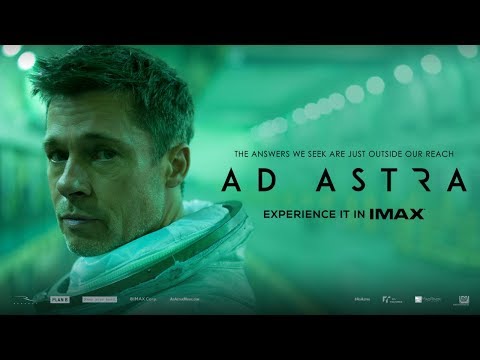“Ad Astra”
Release Date: September 20, 2019
Runtime: 122 mins
Directed by: James Gray
Starring: Brad Pitt
Tommy Lee Jones
Ruth Negga
Donald Sutherland
“Ad Astra” tells the story of astronaut Roy McBride (Brad Pitt) as he embarks on a mission to establish communications with his father (Tommy Lee Jones), also an astronaut, long thought dead. Along the way, he must come to terms with the complex feelings he holds towards his father.
This premise is not all that unheard of in science fiction. It is the way this premise is executed where “Ad Astra” sets itself apart. The film offers a cynical outlook on mankind’s urge to explore the universe. Is it really a good idea to colonize the solar system, encouraging rampant consumerism? By venturing into the vast emptiness of space in search of other intelligent life, are we taking for granted the human connection we already have? The movie leaves the audience thinking, as all good science fiction should.
The movie does not completely wallow in these heavy questions; it also has a couple of great action scenes. The most standout one involves a rover chase on the moon, which is something I have not seen before. Also of note is the opening scene with an impressive skydiving stunt.
The cinematography in the film really is something to behold. Space has not looked this good on the big screen since at least “First Man” and maybe not since “Gravity.”
I can imagine some audience members will get a little bored around the middle of the movie. There is about a 15 to 20-minute chunk where nothing all that interesting happens. There is a bizarre scene involving a baboon which grinds everything to a halt. I understand why it was there, but later scenes serve essentially the same function and do it in a much subtler way.
The script feels a little clumsy at times. You can tell the filmmakers knew where they wanted the movie to go, but they did not always know how to get there naturally. For example, there is a plot reveal towards the end of the second act. The reveal itself makes sense, but the main character only finds this certain thing out after some character whom we have barely seen before shows him a video on her futuristic iPad. It is not at all explained how she obtained this video, and that matters when it contains highly classified government secrets.
The script also makes rather abusive use of voiceover narration. When employed in a creative way which adds to the story, voiceover narration can be a great tool. However, the narration in “Ad Astra” at best adds nothing to the movie and, at worst, takes away from it. Instead of letting the audience recognize the look of fear on a character’s face, the film feels the need to have the main character outright tell us, “I could clearly see he was scared.” This insults our intelligence as filmgoers.
By the time “Ad Astra” gets back on track and the audience realizes the overall point it wishes to get across, some viewers may no longer be invested. After collecting my thoughts on the film, I came to the conclusion that I like the idea of the movie more than the movie itself. This main point is communicated through narration, and while it is effective, I would have appreciated it much more if it was revealed more naturally.
I can reasonably assume most of my problems with “Ad Astra” cannot be blamed entirely on director James Gray. Science fiction as a genre has a history of producers making changes because they do not trust general audiences to understand what is going on. Whether this is the case or not, “Ad Astra” does have something interesting to say, and it is worth seeing if you can get past some of the more annoying parts.











Be First to Comment